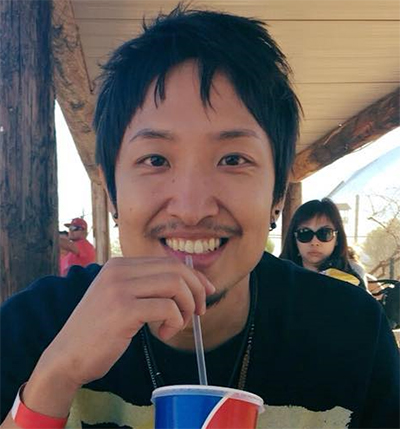 With five published papers, exceptional wet lab and computational skills, and impressive creativity in experimental design, Kotaro Fujimaki is the 2018 MCB Outstanding Graduate Student in Scholarship.
With five published papers, exceptional wet lab and computational skills, and impressive creativity in experimental design, Kotaro Fujimaki is the 2018 MCB Outstanding Graduate Student in Scholarship.
In his third year as a PhD student, Fujimaki has been making important discoveries in cellular quiescence (a “sleeplike” state where cells do not divide) in Dr. Guang Yao’s lab.
“He is an extremely talented and passionate young researcher with truly impressive problem-solving skills, creativity, rigor, and independence,” Yao says, adding Fujimaki has a bright future ahead of him as a researcher.
Fujimaki modestly chalks up his success to having a bit more experience than your average third-year PhD student, including time at Kyoto University and Loyola University, but his motivation and drive are evident as he explains his research.
“I have a lot of passion for science,” Fujimaki says. He has been working around the clock studying cellular quiescence. “In this state, cells are not dividing, but they still can divide. I sequenced cells that were in shallower and deeper ‘sleep’ and found that lysosome genes had a really different expression.”
Fujimaki then showed that reducing lysosomal activity drives cells into an even deeper state of quiescence, and eventually to a senescencelike state, where they no longer can divide. Meanwhile, increasing lysosomal activity moved cells into a shallower state of quiescence.
Although it is “becoming more of a hot topic,” according to Fujimaki, so far the mechanisms underlying quiescence maintenance are not well understood, and Yao believes this contribution is likely to have significant impact in the field of stem cell and cancer biology.
While Fujimaki is quick to point out that it is the discovery that is important, “it’s good for all—it doesn’t matter who does it,” there is a downside to having more research groups publishing in this area.
“We got scooped,” Fujimaki laments of a recent discovery that was just published by another lab. “It was devastating. I talked about it with a friend who also got scooped.”
He has learned that “you have to get over it.” Taking a philosophical approach, Fujimaki advises, “a discovery can be ‘scooped’ if you think of it a certain way, but you can think of it positively—it’s confirming data that you are on the right track.”
Fujimaki’s consolation is that he has a better understanding of the underlying mechanics he hopes to publish soon. All the better not only for science, but for cancer patients as well.
“Many cancer deaths occur from a recurrence,” Fujimaki notes. Part of the problem is that chemotherapy and radiation treatments can miss cancer cells that are not dividing—quiescent cells. Understanding how cells can be “woken up,” could help in developing treatments that don’t miss dormant cancer cells that can cause a relapse or metastasis.
While, according to Yao, Fujimaki can be found in the lab at all hours, the MCB outstanding scholarship honoree can also be found in the club, or collecting beetles.
“There are about 100 different species of stag beetle in Japan, and I’ve collected three quarters of them,” Fujimaki reveals.
Growing up in Tokyo—without a lot of nature—likely led to his love of stag beetles at a young age, according to Fujimaki.
“I donated my collection to Kyoto University,” he shares, adding. “I recently found there is a stag beetle in Arizona.”
And those beetles had better watch out--Fujimaki asked his parents to send his extra-long beetle net (they live high up in trees) so he can resume collecting.
As for the club, “I love hip hop dancing,” Fujimaki smiles. “I started dancing when I was in college in Japan. I go clubbing on the weekends.”
While he calls himself a good “all-around” dancer, he reveals that fellow grad student Teal Brechtel could wow the crowds with the worm.
In addition to finding a fellow hip hop dancer, Fujimaki has found himself in a “really supportive environment” at UA. “I’ve never been in this friendly of an environment in my life!” he exclaims.
His mentor, Yao, is a big part of that experience. “Guang is a good listener—he is willing to let students talk.”
According to both Fujimaki and Yao, talking through new ideas and experimental design helps keep them successful. With three manuscripts in preparation together, their partnership is anything but quiescent.





